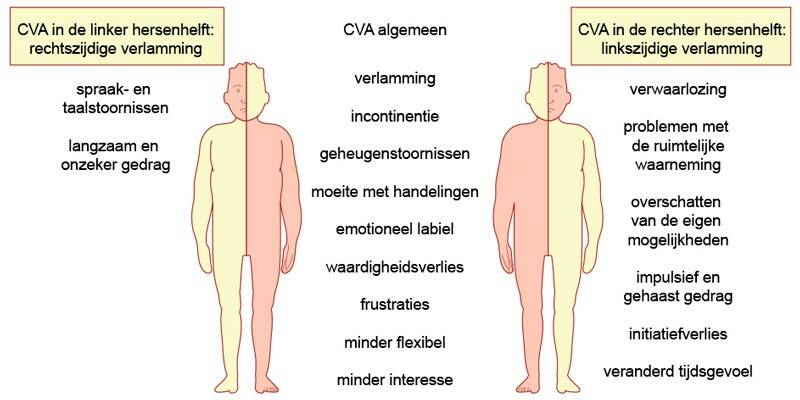Mental Health Services In Ghana: Addressing The Critical Need For Psychiatrists

Table of Contents
The Current State of Mental Health Services in Ghana
Ghana's mental health infrastructure is characterized by a significant disparity in access to care between urban and rural areas. While major cities may boast some specialized mental health hospitals, many rural communities lack access to even basic mental healthcare. This disparity contributes significantly to the already limited availability of mental health professionals.
- Limited Infrastructure: Many existing facilities struggle with inadequate resources, including insufficient staffing, outdated equipment, and limited medication supplies. The mental health infrastructure Ghana currently possesses is insufficient to meet the demands of the population.
- Mental Health Professional Shortage: The number of psychiatrists in Ghana is drastically insufficient to meet the population's mental health needs. This translates to long waiting times, limited treatment options, and inadequate care for many individuals. The mental health professional shortage in Ghana is a critical issue that requires immediate attention.
- Regional Disparities: Access to mental healthcare in Ghana varies widely based on geographical location. Urban areas generally have better access to specialists and facilities compared to rural regions, where individuals often face significant barriers to receiving care. This access to mental healthcare in Ghana needs improvement to ensure equitable service provision.
Challenges Faced by the Mental Health System
Several significant challenges hinder the effective delivery of mental health services in Ghana. Addressing these issues is crucial for improving the overall mental wellbeing of the nation.
Stigma Surrounding Mental Illness
Stigma remains a significant barrier to seeking help for mental health issues. Many individuals experiencing mental health problems are reluctant to seek professional help due to fear of judgment, discrimination, and social isolation. This stigma mental health Ghana faces necessitates robust public awareness campaigns to educate the community and encourage help-seeking behavior.
Lack of Funding and Resources
Inadequate government funding and limited resources hamper the development and expansion of mental health services. This lack of funding affects various aspects of the system, including infrastructure development, professional training, and the provision of essential medications. Mental health funding in Ghana needs substantial increases to effectively address the growing need for care.
Brain Drain
The emigration of trained psychiatrists and other healthcare professionals to more developed countries represents a considerable loss for Ghana's mental healthcare system. This healthcare brain drain in Ghana further exacerbates the existing shortage of skilled professionals, impacting the quality and availability of care.
Limited Training Opportunities
The scarcity of comprehensive training programs for psychiatrists and other mental health professionals contributes to the overall shortage. Investing in robust psychiatry training programs in Ghana is essential to cultivate a larger pool of qualified mental health professionals. This includes establishing more training facilities and offering scholarships to encourage individuals to pursue careers in mental healthcare.
Potential Solutions and Strategies
Improving mental health services in Ghana requires a multi-pronged approach involving increased investment, public awareness initiatives, and strengthened collaborations.
- Increased Funding for Mental Health: Significant government investment in mental healthcare is crucial. This funding should support the expansion of facilities, the recruitment and training of mental health professionals, and the provision of essential medications and resources. Improving mental health access in Ghana requires a commitment to allocating sufficient resources.
- Public Awareness Campaigns: Launching nationwide public awareness campaigns to destigmatize mental illness and promote help-seeking behaviors is essential. These campaigns should utilize various media channels to reach diverse populations and educate communities about mental health issues.
- Investment in Training and Education: Establishing more training programs and offering scholarships to attract individuals to psychiatry and other mental health professions is vital. Improving the quality and availability of psychiatry training in Ghana will help to produce more qualified professionals.
- Community-Based Mental Health Services: Expanding access to mental healthcare in rural areas by establishing community-based services is critical to ensuring equitable care. Developing community-based mental health services in Ghana will help to bridge the gap between urban and rural areas.
- Collaboration with International Organizations: Seeking partnerships with international organizations can provide valuable technical expertise, financial support, and resources to strengthen Ghana's mental health system.
Conclusion: A Call to Action for Improving Mental Health Services in Ghana
The shortage of psychiatrists and the numerous challenges facing Ghana's mental health system demand immediate and concerted action. Addressing the stigma surrounding mental illness, increasing funding and resources, investing in training, and developing community-based services are crucial steps toward improving mental healthcare access in Ghana. We must collectively work towards a future where all Ghanaians have access to quality mental healthcare. Support initiatives aimed at improving mental health services in Ghana by donating to relevant organizations, advocating for policy changes, or volunteering your time. Let's build a healthier Ghana by prioritizing mental wellbeing and ensuring adequate psychiatric care for all. Improving mental health services in Ghana requires the combined efforts of the government, healthcare professionals, and the community.

Featured Posts
-
 Orta Afrika Cumhuriyeti Nin Bae Ile Yeni Ticaret Anlasmasi Ekonomik Etkileri
May 02, 2025
Orta Afrika Cumhuriyeti Nin Bae Ile Yeni Ticaret Anlasmasi Ekonomik Etkileri
May 02, 2025 -
 Ds Mzyd Jngwn Ky Tyary Pak Fwj Ka Mwqf
May 02, 2025
Ds Mzyd Jngwn Ky Tyary Pak Fwj Ka Mwqf
May 02, 2025 -
 Addressing Ghanas Mental Health Crisis The Severe Shortage Of Psychiatrists
May 02, 2025
Addressing Ghanas Mental Health Crisis The Severe Shortage Of Psychiatrists
May 02, 2025 -
 Rolls Royce Confirms 2025 Projections Despite Tariff Challenges
May 02, 2025
Rolls Royce Confirms 2025 Projections Despite Tariff Challenges
May 02, 2025 -
 Elektriciteitsstoring Breda Oorzaken En Gevolgen Van De Grote Uitval
May 02, 2025
Elektriciteitsstoring Breda Oorzaken En Gevolgen Van De Grote Uitval
May 02, 2025
